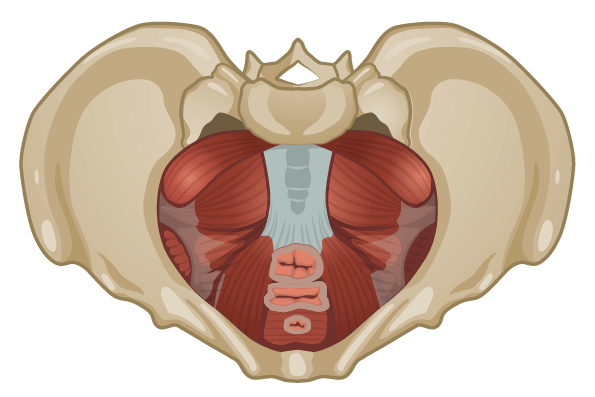Back
Why Kegels Aren't Working For You -- And What To Do Instead
By Dr. Christine Martirez PT, DPT on 1/26/2024

Kegel exercises, long touted as the go-to solution for pelvic floor health, have been prescribed for a variety of conditions, from incontinence to sexual dysfunction. However, the one-size-fits-all approach often falls short, and many individuals find that Kegels don't deliver the promised results. Let's delve into the disadvantages of Kegels, why they may not work for everyone, and explore alternative exercises for a more personalized approach to pelvic floor dysfunction.
The Downsides of Kegels
Ineffectiveness for Some Conditions:
While Kegels are often recommended, they may not be the best tool for all pelvic floor issues. Conditions such as pelvic pain or hypertonic (overactive) pelvic floor muscles may not respond well to traditional Kegel exercises.Improper Technique:
Many individuals struggle with proper Kegel technique. Without guidance, some may inadvertently engage the wrong muscles or overexert, leading to muscle tension or worsening symptoms.Exclusivity for Weak Muscles:
Kegels primarily target strengthening pelvic floor muscles. However, pelvic floor dysfunction can also stem from muscles that are too tight. In these cases, Kegels may exacerbate the problem rather than provide relief.Zoning in on Only the Pelvic Floor:
Pelvic floor dysfunctions are often seen with strength and mobility issues through surrounding parts of our body, such as our low back and hips. Performing Kegels only addresses one piece of a very big puzzle, and performing Kegels in isolation will not address the other bodily deficits.

Why Kegels Don't Work for Everyone
Misdiagnosis of Pelvic Floor Issues:
Kegels are often recommended without a thorough assessment of the pelvic floor. Without understanding the specific issues at play, individuals may end up performing exercises that are inappropriate for their condition.Overemphasis on Strength:
Kegels primarily focus on pelvic floor muscle strength, neglecting the importance of flexibility, coordination, and relaxation. This narrow emphasis may not address the multifaceted nature of pelvic floor dysfunction.Failure to Address Lifestyle Factors:
Pelvic floor health is influenced by various factors, including posture, breathing, and overall lifestyle. Relying solely on Kegels without addressing these contributing factors may limit the effectiveness of the exercise.

Alternatives to Kegels
Pelvic Floor Relaxation Exercises:
For individuals with hypertonic pelvic floor muscles, relaxation exercises play a crucial role. Deep diaphragmatic breathing, gentle stretches, and mindfulness techniques can promote muscle release and alleviate tension.Pelvic Floor Coordination Exercises:
Exercises that focus on coordination and control of pelvic floor muscles can be beneficial. These may include incorporating movements that engage the core, hips, and lower back in a coordinated manner.Mobility Training:
Mobility training incorporate movements that enhance flexibility, strength, and overall body awareness, addressing the interconnected aspects of pelvic well-being. There are lots of whole-body connections to the pelvic floor, consisting of connective tissues, muscles, and ligaments.Nervous System Down Training:
The nervous system plays a huge role in pain and pelvic floor dysfunctions. Learning techniques on how to relax your nervous system can be a helpful tool in addressing your symptoms.
While Kegels may be effective for some, they are not a one-size-fits-all solution for pelvic floor dysfunction. Recognizing the disadvantages and understanding why they may not work for everyone is the first step toward a more personalized approach to pelvic health. Exploring alternative exercises and seeking guidance from a pelvic floor physical therapist can empower individuals to discover a holistic and tailored path to improved pelvic floor function and overall well-being. The key lies in embracing diversity in pelvic floor exercises to meet the unique needs of every individual.
Reach Out to Us
If you are experiencing pelvic floor dysfunctions associated with the issues above, please reach out to us at Pelvic Health Center in Madison, NJ to set up an evaluation and treatment! Feel free to call us at 908-443-9880 or email us at receptionmadison@pelvichealthnj.com.
Read More:
How Chronic Pelvic Congestion in Men Contributes to Prostatitis By Shannon Strauch, PTA, STMT-1 on 12/11/2024 How lymphatic issues can cause symptoms of prostatitis Prostatitis and Tight Pelvic Floor Muscles: A Comprehensive Guide By Shannon Strauch, PTA, STMT-1 on 12/10/2024 How a tight pelvic floor can be the reason for prostatitis symptoms
Are you ready to live pain free?
Request An Appointment